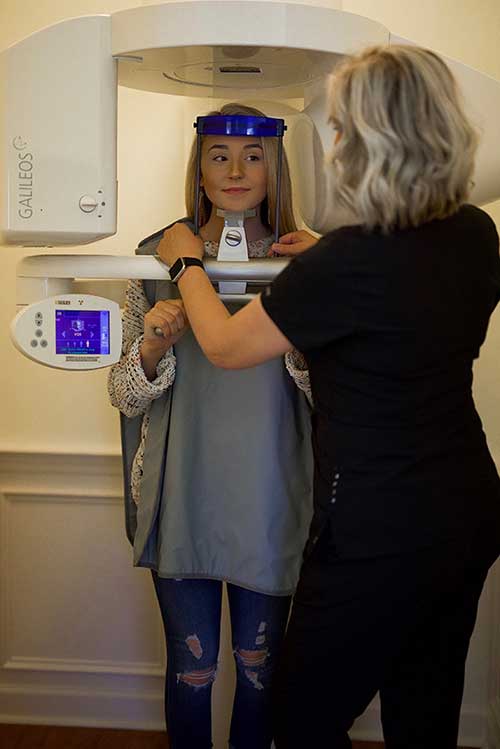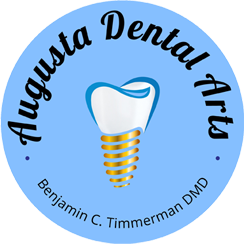
Bi-Annual Cleaning for the Entire Family
Sleep Apnea & Snoring Mouthpieces
TMJ Therapy
Oral Conscious Sedation Dentistry
White Filling
Crowns
Bridges
Implants
Root Canal Therapy
Gum Disease
Dentures
Partial Dentures
Fluoride Treatment
Laser Whitening
Veneers
Extractions
Night Guards
Nitrous Oxide
Digital Xrays
3-D Xrays
Cleanings
Don’t Let Fear of Dentistry Prevent You From Getting The Care You Deserve!
If dental anxiety and worry causes you or loved ones to avoid the dentist, we can help. Dr. Ben Timmerman is fully certified and experienced in providing sedation dentistry in Augusta, GA for patients who need these services.
Circumstances that Require Sedation Dentistry:
• Patients with health or behavioral issues that prevent them from remaining still
• A great fear of needles or dentistry equipment and medical environments
• Strong gag reflex
• Heightened tooth sensitivity
• Distressing dental memories
• Procedures that require many hours
• Extreme embarrassment about oral condition
Relieving Dental Anxiety with Sedation
Oral Sedatives: Dental anxiety is frequently addressed with an oral sedative that you can take at home before your scheduled dental appointment. This approach is especially helpful for relieving dental anxiety among patients who are fearful of taking injectable sedatives. Instead, Dr. Timmerman will prescribe a pill for you to take about an hour before you arrive for your treatment. The effect will cause you to feel sleepy and very relaxed, so you will need someone to drive you to our office and then back home after the procedure. When you arrive, you will be given a comfortable chair and blanket so you can relax peacefully while Dr. Timmerman provides your treatment.
Nitrous Oxide (N2O): Nitrous oxide (N2O), also known as laughing gas, is a very common way to reduce dental anxiety during procedures. N2O is a safe inhalant with no odor or color and works fast to diminish stress and fear while inducing feelings of deep relaxation. The effect also wears off very fast once the gas is no longer administered, and most patients can drive themselves home after the procedure.
Sedation dentistry in Augusta, GA at Augusta Dental Arts makes treatment possible for those who suffer from dental fear and anxiety. Call today to schedule your appointment.
Root Canal Therapy
Are You Living With Tooth Pain? We Offer Comfortable Root Canals!
Root canals are necessary when the pulp layer of a tooth becomes infected, which is often a result of extensive tooth decay. Infection can lead to the loss of a tooth, so it is necessary to remove the infection with root canal therapy. The procedure is performed by a doctor for root canals under local anesthesia and is generally comfortable, saves the natural tooth, prevents the spread of infection, and helps return the smile to complete health.
The Procedure: Before the procedure begins, the area is completely numbed using a local anesthetic. Once the area is numbed, a rubber dam is placed around the infected tooth to protect the mouth and to prevent anything from falling into the back of the throat.
In order to access the infected tooth pulp, your doctor for root canals makes an opening through the top of the tooth to get down into the pulp chamber. A tiny instrument, called a dental file, is then carefully used to clean out the infected tissue and to shape the root canals to receive the filling material. X-rays will be taken to ensure that all of the infected pulp is removed before the filling is placed and to confirm that the filling material reaches the ends of the canals in each root.
After the infected pulp is removed, the restoration is placed. In most cases, a crown is placed to protect and strengthen the tooth. However, if the tooth is severely broken down, it may be necessary to start by building up the tooth with a post and core.
Frequently Asked Questions
1. How did my tooth become infected?
There are two common causes of infection: tooth decay and fractured or broken teeth. Both expose the pulp area to bacteria that live in the saliva. These bacteria can cause an infection that can kill the pulp.
2. Do I really need treatment?
Without treatment from a doctor for root canals, pus from the infected tooth can spread to the root tip and eventually pass to the jaw bone. This can cause an abscess, or a pus pocket, that can damage the bone that surrounds the tooth. The pressure this causes can result in excruciating pain and, if left untreated, can be life threatening. An infected tooth or one that is suffering from tooth decay cannot heal on its own and will only get worse.
3. What are the symptoms?
Symptoms tend to vary from patient to patient. Infected teeth may be sensitive to hot, cold or biting pressure, the area may be swollen or painful, or there may be a bad taste in the mouth. Occasionally, there will be no symptoms at all.
If you have tooth decay that is left untreated, it could necessitate the need for a root canal. Call Augusta Dental Arts to schedule your appointment as soon as possible.
Tooth Extractions
Dental extractions are performed for a variety of reasons, including tooth decay, injury, infection, and for orthodontic treatment. Extractions are a relatively common procedure in most dental offices. The difficulty of the procedure varies depending on the case and the patient. However, anesthesia is used to numb the area and prevent discomfort during the procedure.
Types of Extractions:
here are two forms of extractions: simple and surgical.
Simple extractions are performed on teeth that can be seen in the mouth and that do not require sectioning the tooth or incising the gum tissue for removal. These extractions are performed on teeth that must be removed due to extensive decay or injury, or even orthodontic treatment, and are usually performed under a local anesthetic. During this procedure, the doctor will grasp the tooth with forceps and loosen it by moving the instrument back and forth until the supporting structures widen enough to allow the removal of the tooth.
Surgical extractions are performed on teeth that have broken off at the gum line, have not yet come in, or those that cannot be easily extracted. To remove the tooth, the doctor will have to cut and pull back the gums, which allows access to the area. This is necessary for visibility, so that we can see the tooth that needs to be removed. Surgical extractions are usually performed under local anesthesia but a general anesthesia is sometimes preferred, especially for wisdom teeth extractions.
Reasons for Tooth Extraction
The most common reason for the removal of a tooth is severe decay or breakage of a tooth that cannot be saved. However, teeth may also be removed because of:
- Severe tooth decay or infection
- Extra teeth that are blocking other teeth from growing in (supernumerary teeth)
- Severe gum disease
- Orthodontic treatment
- Non-restorable teeth
- Fractured teeth
- Cosmetic reasons
Digital X-rays

Instead of using a conventional film, we use a special computer sensor which puts the x-ray picture directly into the computer and which allows us to reduce the amount of harmful radiation by nearly 90%. Since the pictures are in the computer, we can enhance the images to better diagnose conditions–often before they become problems. This proves to be much more convenient for you because the x-rays can then be displayed on the computer right in front of you!
Patient Benefits
- Less exposure to radiation
- Faster turn-around time
- Shorter appointments
- Involvement in co-diagnosis
- Improved understanding of the treatment options
Dentures
We Offer The Most Comfortable Fitting Dentures Around!
Dentures are designed to replace missing teeth and can be taken out and put back into your mouth. While dentures take some getting used to, and will never feel exactly the same as one’s natural teeth, today’s dentures are natural looking and more comfortable than ever.
There are two main types of dentures: full and partial. Your doctor for dentures will help you choose the type of denture that is best for you based on whether some or all of your teeth are going to be replaced and the cost involved.
Full or Complete Dentures:
Full dentures are used to replace teeth after they have all been lost or removed. The teeth are usually removed due to gum disease or decay. Dentures are used to replace missing teeth and can be either conventional or immediate. Conventional dentures are usually placed after all of the teeth have been removed and the gums have begun to heal, usually after about 12 weeks. Immediate dentures are placed immediately after the teeth have been removed. These appliances provided by doctors for dentures allow the patient to replace missing teeth during the healing process but will most likely need to be realigned or redesigned after healing is complete, as the gums will shift and change during this time.
Partial Denture:
Partial dentures are devices that are used when one or more natural teeth remain healthy in the upper or lower jaw. They are designed to fit around the remaining healthy teeth and can be either removable or fixed. Removable partial dentures can be removed from the mouth for cleaning or eating. A fixed partial denture accomplishes the same result as a removable partial denture, except that it is cemented into place using the adjacent teeth for support and is usually called a bridge.
If you need to replace missing teeth and think that dentures might be right for you, contact your doctor for dentures today. For more information about dentures, call Augusta Dental Arts.


